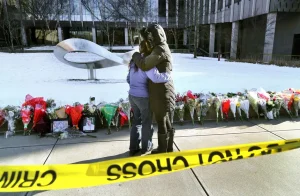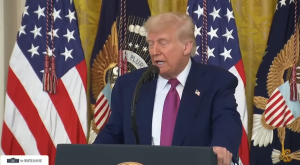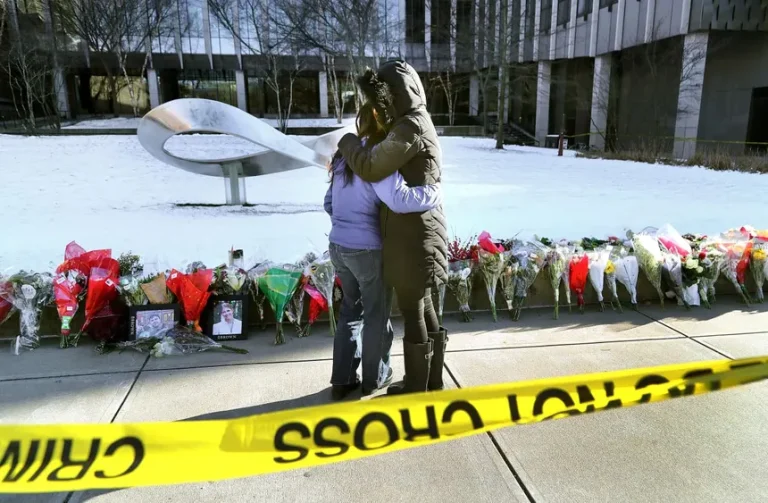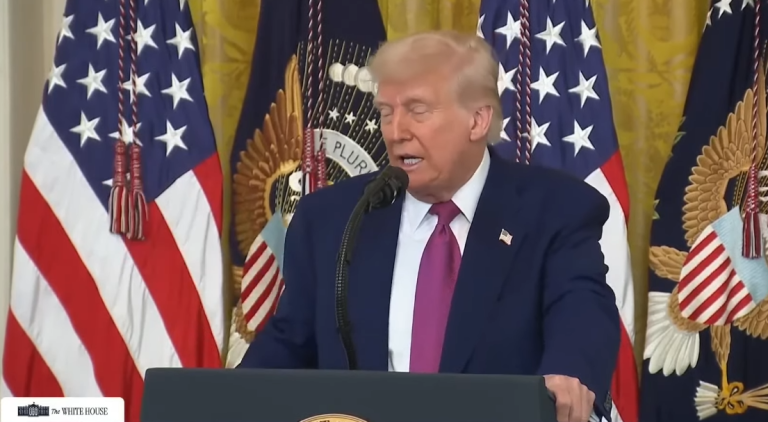A violent attack during a peaceful pro-Israel event in Boulder, Colorado, has sparked national attention and reignited debates over U.S. immigration policy. The alleged attacker, Mohamed Sabry Soliman, a 45-year-old Egyptian national, was identified as a visa overstay who entered the country in 2022 during the Biden administration. Soliman reportedly carried out a targeted assault on participants of the “Run for Their Lives” walk—an event meant to raise awareness about Israeli hostages held by Hamas in Gaza—injuring multiple elderly individuals.
The Federal Bureau of Investigation (FBI) and local law enforcement agencies are currently investigating the incident as a possible case of ideologically motivated violence. The suspect reportedly used incendiary devices, including a makeshift flamethrower and Molotov cocktail, in the attack. According to eyewitness accounts, he shouted politically charged slogans, including “Free Palestine,” as he launched the assault.
The Attack
On the morning of June 1, 2025, participants gathered for a solidarity walk in downtown Boulder. The event was part of a larger movement of peaceful demonstrations and awareness campaigns across the U.S., in support of the release of Israeli hostages still held in Gaza. According to Boulder Police and eyewitnesses, the suspect approached the crowd shortly after the event began, carrying improvised incendiary devices.
Authorities allege that Soliman first deployed a makeshift flamethrower, directing it at the crowd, followed by the throwing of a Molotov cocktail. The explosion and resulting flames left eight individuals injured, ranging in age from 52 to 88. Emergency services responded quickly, and the victims were transported to nearby hospitals for treatment. Most are expected to recover, though at least two sustained serious burns requiring extended care.
The suspect attempted to flee the scene but was apprehended shortly afterward by Boulder Police, aided by event security and witnesses who provided descriptions and footage. He was taken into custody and is now facing multiple felony charges, including aggravated assault, unlawful use of explosives, and attempted murder.
The Suspect’s Immigration Background
Federal sources, including U.S. Immigration and Customs Enforcement (ICE), have confirmed that Soliman entered the U.S. on August 27, 2022, through Los Angeles International Airport using a B1/B2 nonimmigrant visitor visa. The visa permitted him to remain in the country legally until February 26, 2023. However, he failed to depart as required and overstayed his visa.
According to immigration records reviewed by officials, Soliman submitted a claim with U.S. Citizenship and Immigration Services (USCIS) on September 29, 2022. While the exact nature of the claim remains undisclosed, sources indicate it may have been an asylum application. Under current immigration policies, individuals with pending asylum claims are eligible to apply for work authorization after 180 days. Soliman was subsequently granted a work permit in March 2023, which expired in March 2025.
Because his immigration case was still pending at the time of the attack, Soliman was not classified as a priority for removal under existing DHS enforcement guidelines, which prioritize individuals with criminal convictions or national security concerns.
Legal Proceedings and Federal Response
As of June 2, Soliman remains in custody without bail, pending his first court appearance. Prosecutors from the Boulder County District Attorney’s Office and representatives from the U.S. Attorney’s Office are coordinating on a multi-agency investigation, which could include federal terrorism-related charges if ideological motives are confirmed.
The FBI released a statement confirming its involvement:
“We are working closely with our local and federal partners to determine the motive and background of the suspect. Preliminary evidence suggests that the attack may be ideologically motivated, but the investigation remains ongoing.”
If federal charges are added, Soliman could face life in prison, or even the death penalty, depending on the outcome of further inquiry and any connections to extremist groups or ideologies.
Political Fallout
The case has quickly become a flashpoint in the national debate over immigration enforcement and visa overstays. Critics of the Biden administration’s immigration policies argue that the system failed to identify and remove a potential threat before the attack occurred.
Former Trump administration advisor Stephen Miller, now a leading figure in conservative immigration advocacy, posted on X (formerly Twitter),
“A terror attack was committed in Boulder, Colorado, by a foreign national who overstayed his visa. Instead of removing him, the Biden administration gave him a work permit. This is suicidal immigration policy.”
Republican lawmakers, including House Speaker Mike Johnson, have echoed those concerns, calling for immediate congressional hearings and the introduction of stricter visa tracking and enforcement mechanisms.
In contrast, supporters of current immigration law emphasize the importance of due process, noting that Soliman’s asylum claim—if legitimate—deserved proper adjudication and that no background red flags were raised prior to the incident. Civil rights organizations also caution against generalizing the actions of one individual to broader immigrant populations, warning against xenophobic rhetoric in the wake of the attack.
Context and Broader Implications
Visa overstays make up a significant portion of undocumented immigration in the United States, with estimates suggesting they account for nearly 40% of all undocumented individuals. While many remain in the U.S. without incident, the Boulder attack has highlighted the potential risks when the immigration system fails to track and follow up with individuals whose legal status lapses.
The Department of Homeland Security (DHS) has previously acknowledged difficulties in enforcing visa compliance, citing resource limitations and bureaucratic challenges. The Biden administration has proposed increased funding for visa overstay enforcement and improved data-sharing between USCIS, ICE, and Customs and Border Protection (CBP), though critics argue these measures have not gone far enough.
The political stakes are high. Immigration is expected to be a dominant issue in the upcoming 2026 midterm elections, with national security concerns further intensifying the rhetoric. The Boulder attack, tragic as it is, may become a defining example cited by both sides—those pushing for tougher border control and visa enforcement, and those advocating for measured reforms that balance security with human rights.
Community and Victim Support
In Boulder, local officials and faith leaders have condemned the attack and expressed solidarity with the victims. Community organizations have organized a vigil and fundraising drives to support those injured.
Rabbi Sarah Cohen of Temple Beth El, one of the event organizers, stated:
“This was a cowardly act of hatred. We are praying for those hurt, and we remain committed to standing up for peace and justice. Violence will not silence us.”
The “Run for Their Lives” group has also confirmed that they will continue organizing events and that security will be enhanced going forward.
Conclusion
The Boulder attack has opened yet another chapter in America’s ongoing struggle to balance immigration, national security, and civil liberties. While the facts surrounding Mohamed Sabry Soliman’s immigration status and actions are now clear, the broader implications—legal, political, and social—will be felt for months, if not years, to come.
As investigations proceed and more details emerge, the public and policymakers alike face the difficult task of responding thoughtfully without resorting to fear or prejudice. What remains certain is that the victims and the Boulder community deserve justice, healing, and assurance that such violence will not be tolerated again.

James Jenkins is a celebrated Pulitzer Prize-winning author whose work has reshaped the way readers think about social justice and human rights in America. Raised in Atlanta, Georgia, James grew up in a community that instilled in him both resilience and a strong sense of responsibility toward others. After studying political science and creative writing at Howard University, he worked as a journalist covering civil rights issues before dedicating himself fully to fiction. His novels are known for their sharp, empathetic portraits of marginalized communities and for weaving personal stories with broader political realities. Jenkins’s breakout novel, Shadows of Freedom, won national acclaim for its unflinching look at systemic inequality, while his more recent works explore themes of identity, resilience, and the fight for dignity in the face of oppression. Beyond his novels, James is an active public speaker, lecturing at universities and participating in nonprofit initiatives that support literacy and community empowerment. He believes that storytelling is a way to preserve history and inspire change. When not writing, James enjoys jazz music, mentoring young writers, and traveling with his family to explore cultures and stories around the world.









